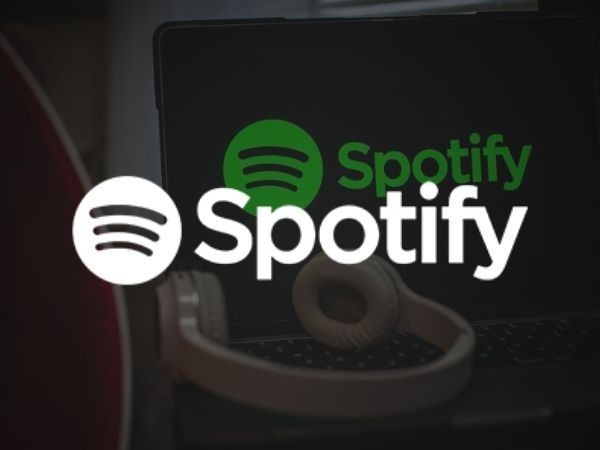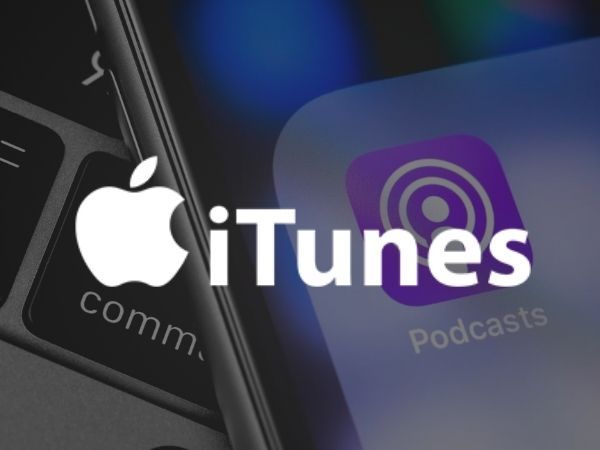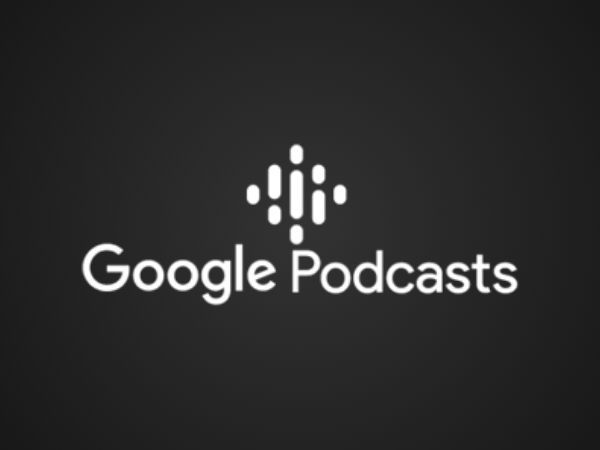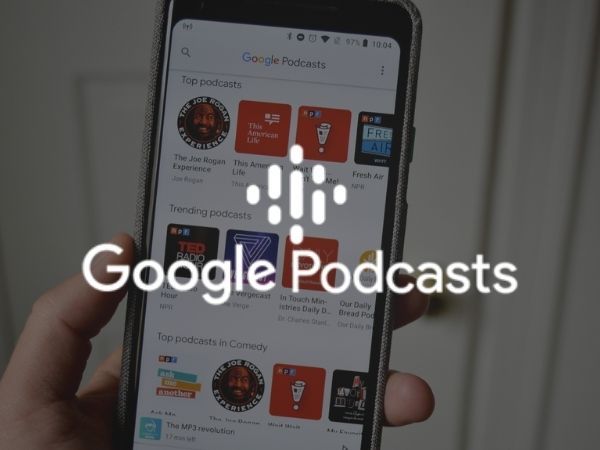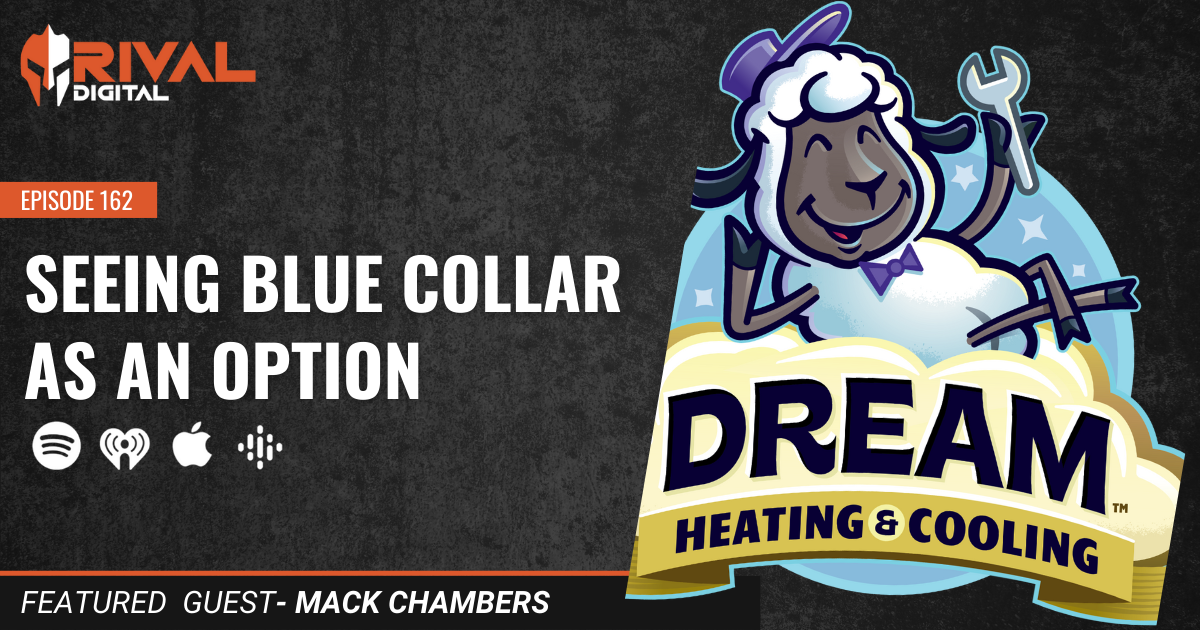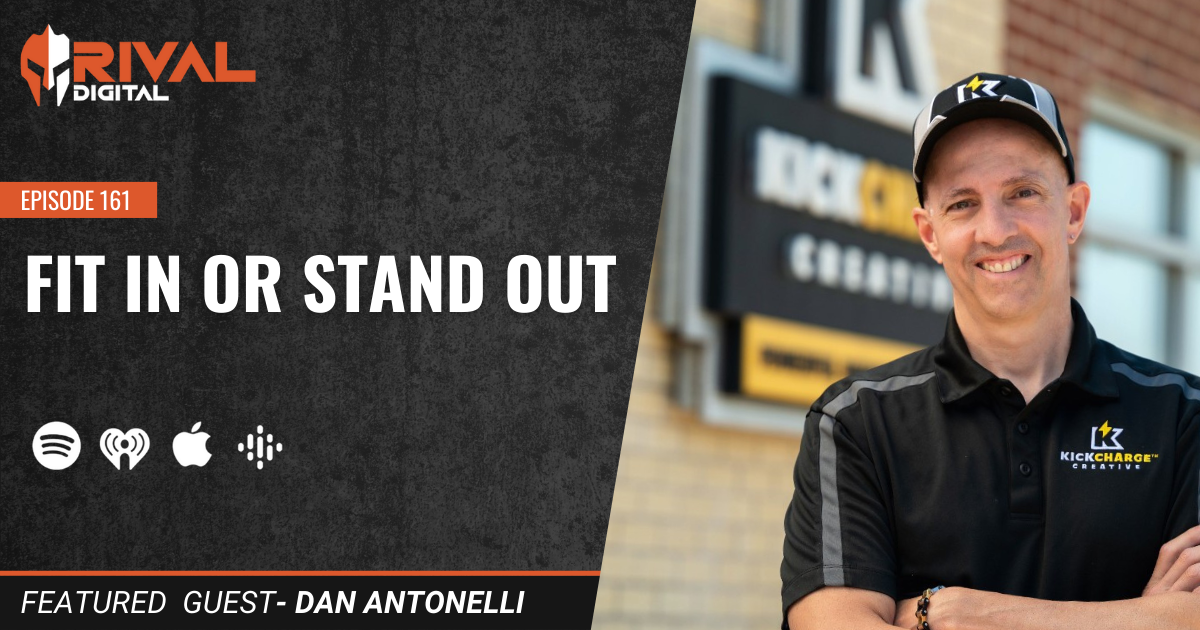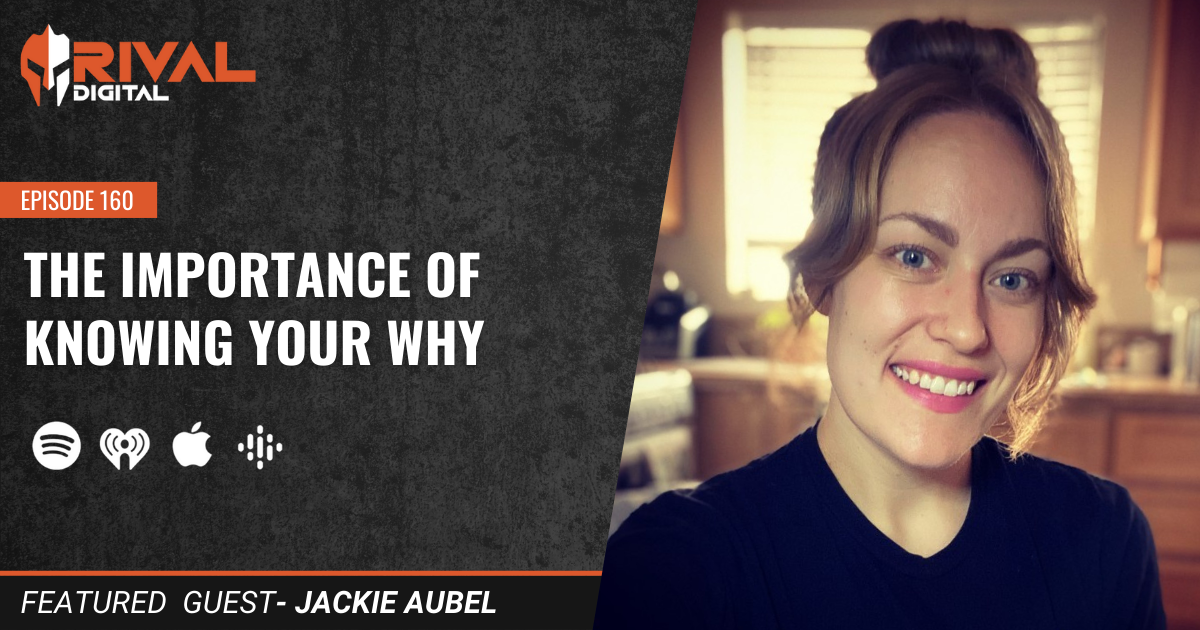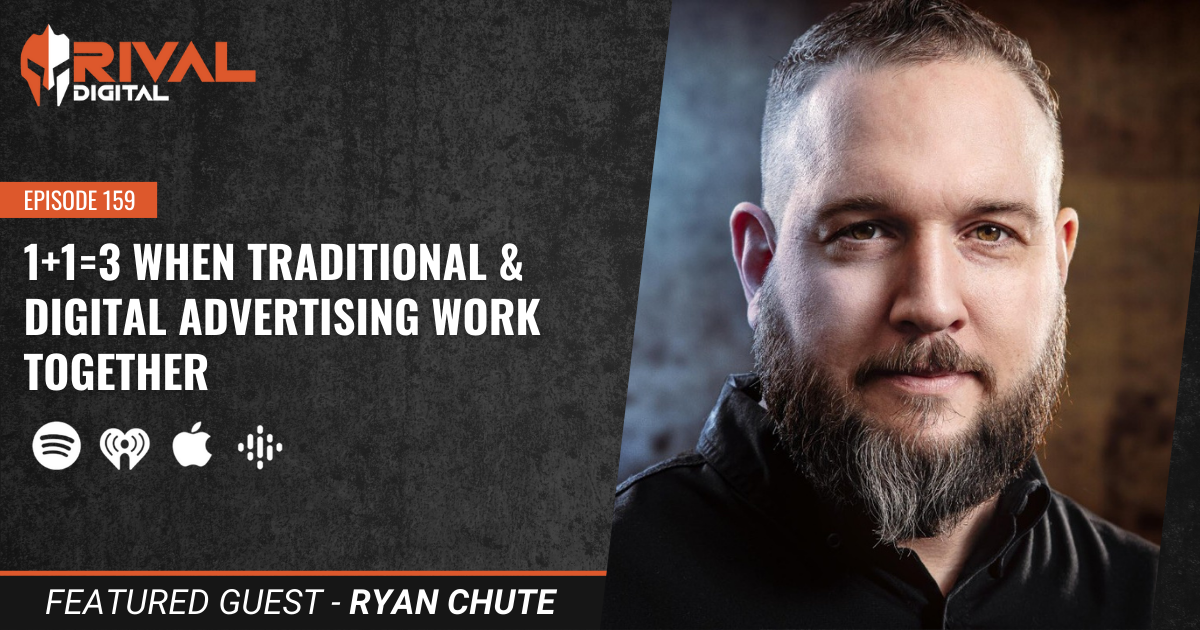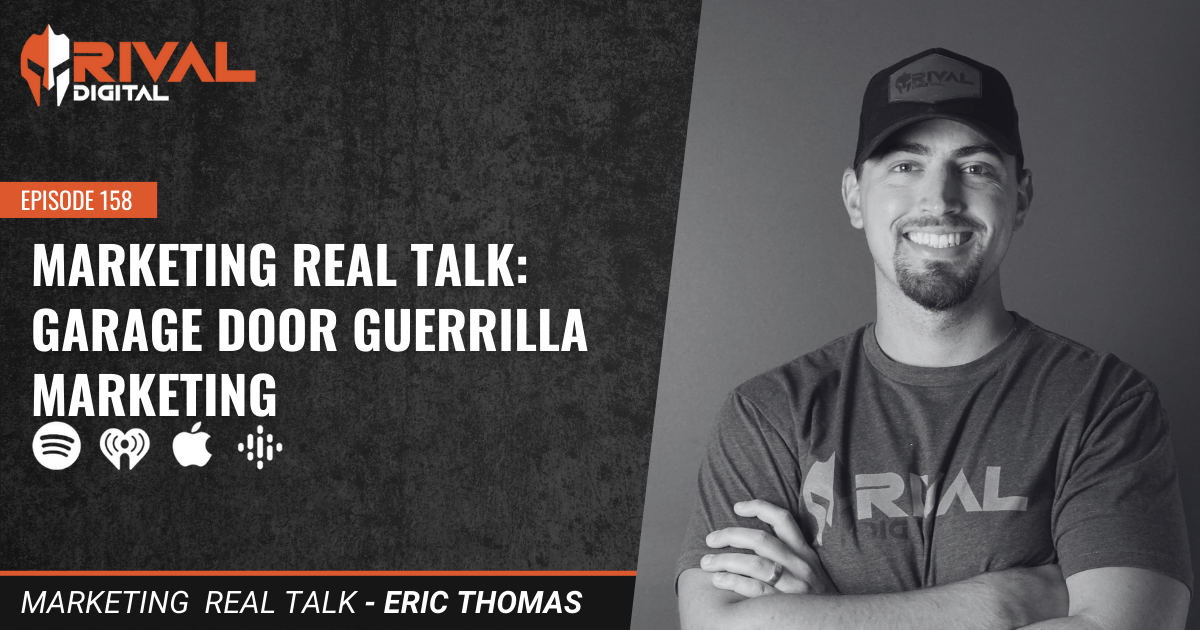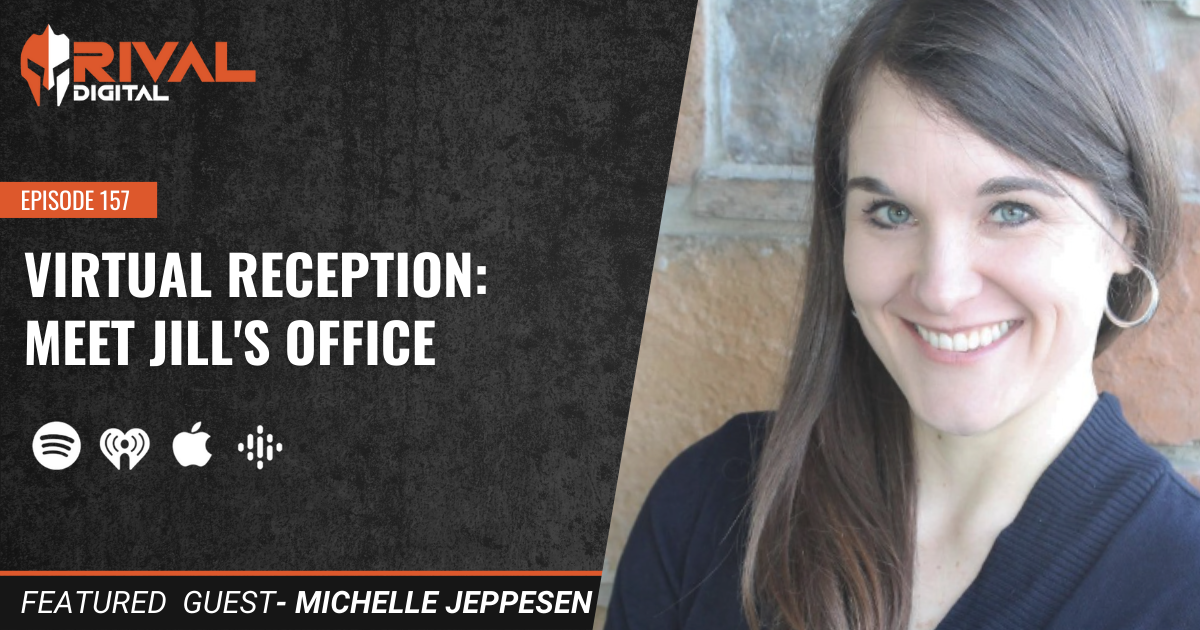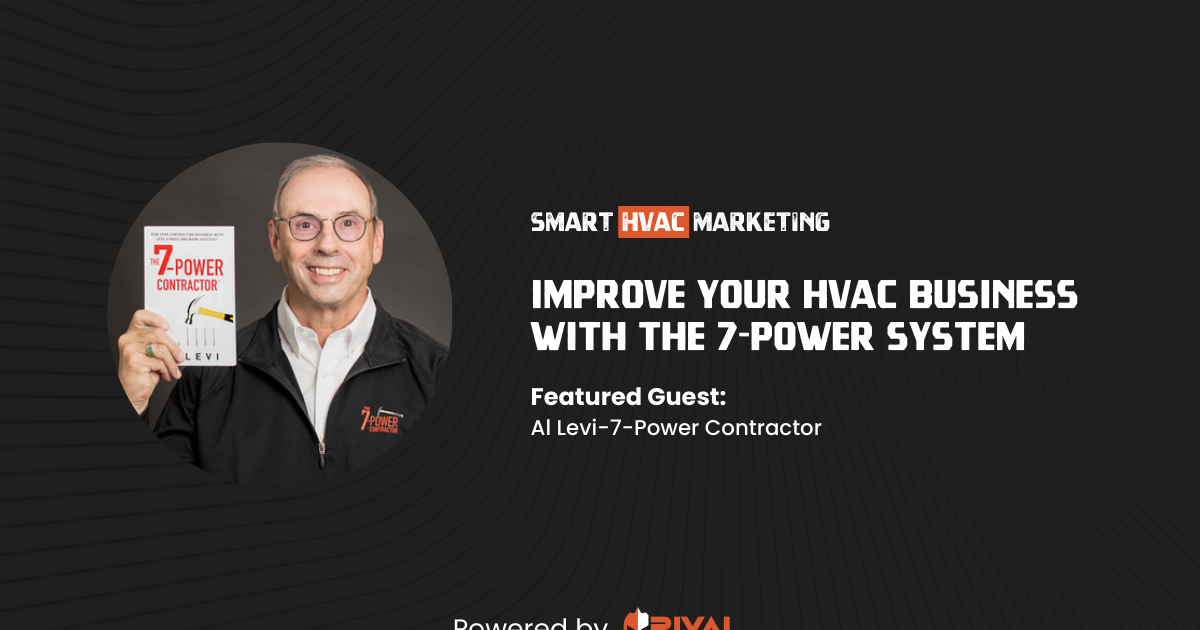
The first episode recorded in 2022! On this episode we are joined by Al Levi from The 7-Power Contractor.
This native New-Yorker shares with Eric the 7 steps needed to grow your business and obtain success.
The 7-steps include:
- Planning
- Staffing
- Marketing
- Operating
- Sales
- Sales Coaching
- Financial
Listen to find out which step is the most important and how to put them all into place to lead your business towards the upmost success in the brand new year!
The Smart HVAC Marketing podcast was created by Rival Digital to help residential HVAC contractors and is now streaming on all major platforms. Follow along for ways to improve your marketing and grow your business as we continue interviewing more industry experts.
We do not own the rights to the songs in this episode. Should we need to remove it from the audio, contact us directly at podcast@rivaldigital.com.
Transcription
In case you prefer reading, these are mostly correct. Scroll in the box to see more.
Eric: Hello again everybody, Eric Thomas here, back with our first episode. I guess our first recording of the New Year. We’ve released episode this year, but it was recorded last year. So our very first recorded episode of the year. Thank you all again for tuning into the podcast for yet again another episode. Today, we are joined by Al levy, the seven power contractor. Al how are you doing?
Al: I’m doing great. And thanks for letting me be the lead off hitter.
Eric: Absolutely Al, thank you again so much for taking the time out of your day to come to speak with me on the show. So why don’t you go ahead, introduce yourself for our listeners out there and, and give them kind of the rundown on your history in the industry.
Al: I was the youngest of family of six. I was the youngest of the three brothers that came into our business, which at one point was heating. Maybe there’s a trace of my New York accent left, but yes, I’m from New York City originally. And if you know where JFK airport is just drive towards the water. And that’s where we were located. We were on Long Island, which was at least 115 miles tip to tip in New York traffic. We did go into plumbing, gas heating, air conditioning, and electrical. And I worked there for 26 years officially, but as a kid in any family business, anybody’s listening out there, you know, by the time you’re eight, you’re a helper and that’s my life.
I was lucky enough to go to school. When I got back, my dad gave me a toolbox. Once he saw my diploma, off into the field, I went. And then I went off of the last 20 years and I’ve been doing one to one consulting with clients all over the great United States and Canada. And at this point, basically I started to put my products online. And so now I’m reaching people in Australia, New Zealand, which is frankly pretty cool. I really enjoy it.
Eric: That’s awesome. Well, I definitely want to hit on the consulting system and I also want to hit on the book a little bit too so why don’t you go ahead and start by telling us about the book?
Al: Okay. Well, Shameless Plug. I wrote that book to be really thin. I had been a writer in plumbing mechanical PM. And I had a lot of articles over the years. And so I decided it was time to just put a book out there, not from ego, but it was again to reach more people. And so I was lucky enough to have a great editor, my editor Helena and she says, well you have all this content what do you need me for? I go, there’s an audience of 250 of my kids. And they’re all saying, pick me. And so I need you or my book will look like a ransom note. And that’s actually the advice I gave Tommy Mellow when he showed me his book.
I said, you need my editor to help you make it straight. And what I shared with her is that I want you to be able as contractors, we’re super busy I’m not writing an English term paper here. It’s gotta sound like me talking, and it’s gotta be able to be read two to four hours. I’m not a fast reader. And that’s what I think you need to be doing. Now the good news is people read it over and over again, which was my design. Because there was more and more to share here. It’s really tough Eric to make a thin book, easy to make a big fat book.
And so we really pair it away to the essentials, which what I’ve always taught is these seven powers. And I really kind of go into that as a big part of what this book is about. Now, more people I realize are still stuck behind the wheel or frankly they just like to listen to audible. So if you like these golden tones that you’re hearing, you can also get this book audible because I do speak to you one to one. A lot of guys actually listen to audible and then they buy the book because the yellow highlight sections of it, which I think is a great way to go. Plus I need your 25 bucks from Amazon. So thanks.
Eric: I’m much more of just reading the hard copy, but I know just based on the listenership of this podcast alone, that there are folks out there that like to listen to eBooks and audibles and stuff, even when they’re out in the truck, driving to a work site or something like that. So yeah, definitely go check that out. And so you mentioned the seven powers, so let’s dig into that a little bit more. So from a huge kind of 10,000 mile view, what is the 7 powers? I guess what are the 7 powers?
Al: Yeah. I got the nice shirt and I got a look. So here’s the 7 powers. The best way to think of it is I’ve only worked with two types of companies in my 20 years. Either there were a great couple of owner that work super hard and they’ve created this great thing, but everything is tied to them. And so what they realize is they ran out of days in a week, weeks in a month, months in a year and they can’t clone themselves. So they’re stuck without these systems and the other ones are great growers like we talked about Tommy Mellow is a great example, where they’re organic. They’ve been able to grow there acquisition like we did as well. Where they’ve got all this heft to the business. But the problem is that there’s no system. So every time the phone rings, it’s gasoline to a fire.
And so they need the same systems. Believe it, not for both. The best way to think of it is like putting a foundation down so that you build your beautiful dream home, which is your business. So it’s planning power, operating power, staffing power, sales power, sales coaching power, marketing power and financial power. There are 7 of them. And those are the blocks, if you will. The better you have those covered, the better your house or pyramid or whatever analogy you’d like to use is going to make your structure repeatable that you someday can sell your business or pass it on to the next generation. Just like it was for me.
My nephew now is in business with my middle brother. The fourth generation is hard at work and that does take systems. And so what’s fun for me is I now have trades all over the place. Again, I was in plumbing, heating, cooling, electrical, but these same systems are at work at a condo builder in Montreal of commercial roofing company, a garage door monster company. It’s more a like, because we as contractors have it. Now, if you happen to be plumbing, heating, cooling, electrical. Yeah, the systems are even that much easier, but that’s really the nature of it.
Eric: Yeah. So when you think about the 7 powers and say you were speaking directly to a contractor listening now, who’s just starting off in their business that maybe they’re a few weeks out from quitting their job and going full time with their own business, which of these seven powers would you recommend for them to absolutely nail first right off the bat?
Al: It’s actually the power I don’t do. I think you, Ellen Roar was the great consultant that was a friend. And we also did co consulting. We’ve been friends for forever, but we decided years ago that we would always date and never get married. So she had her company and my company and we worked together alone in separate companies as well. I think until you do a budget and learn the basics of financial, you don’t have to turn into a financial engineer. But if you’re at that stage, what you’re talking about, where I’m deciding I’m going to leave, because one of the biggest problems is with the owner operator ready to go. And it’s a case of, well, my work is great and people love me and they’ll all come with me.
But you don’t know what to charge. You don’t know what it cost to be in business. You don’t know how to get out of business. So you’re not going to make any mistakes. I myself, when I do one to one consulting, which I no longer do, it always starts with planning power. So planning power is top of the funnel. Your master project lists, all the things you have to do. And there are projects and habits, especially for an establish company. They’re not just projects, not just habits across the top line. They work their way down the funnel because they either fix the biggest problem or challenge or they give you the greatest chance to grow and be profitable.
You get to your top 30 and the top 30 is what you’d work on in one year. But you cannot work on 30 things effectively. I don’t care what size company you are. And I have worked with monster companies and they can’t do it. You just drive everybody insane. So they use the same filters, again, biggest problem or challenge, greatest chance to grow and be profitable. You arrive at your top five. And that is the most important thing because even with my one to one clients, I tell them, so tell me what’s more important this week than the top five that you said will fix your biggest problem and challenge your greatest chance to grow and be profitable and I’ll help you out.
Nothing is more important than that. You have to spend a portion of your week, no matter how crazy it is. Now to this day, I still have a meeting with me and where I have this Sunday catch up, where if I haven’t worked this week on the business, which is very rare, but still it allows me to focus on my top five and getting stuff to done.
Eric: That’s really cool. I think when it comes to like starting a contracting business or a home service based business, I feel like there are two types of operators. There’s like the one that was in the field who understands the trade and understands the technical aspect of fulfilling the work and then there’s the more business savvy person who understands the back-end operation, but maybe not so much, how to repair a heat pump. So it presents different challenges for both. The person who knows how to fix a heat pump can go fix the heat pump himself until he or she can afford to hire technicians, the person who can’t fix it immediately has a staffing issue on their hand.
Al: Yes. And here’s the thing is if you’re going to be off as an owner operator or when you get started, you need to create more demand than you can humanly do in a day. Because once you do that, you’re able to set the price you’re going to charge for the few hours that you have, so that you’re making sure that you get the money that you need to grow at your company and go. And then ultimately charge enough that you can start replacing yourself as the only one who can go out and do the work.
That’s usually the path upward for people in that particular situation. The other way is to go acquire other owner-operators because here’s the sad truth of it, is by the time, if you’re an owner-operator or even like a one or two truck, when you hit 50, you can’t do what you did at 40. When you’re 40, you can’t do what you did at 30. I’ve lived that whole spectrum. And so your knees are different. Your back is different. Your eyes are different, it’s all just a bad kind of thing. And again, you can’t clone yourself.
Heaven forbid you get sick or hurt or whatever, business ceases. And so that’s part of the path there. The other way is to acquire companies. So some of the better, smarter people, when they jump, realize this way they to call that person, who’s fifty, sixty, seventy, doesn’t have the success that are coming in and there’s a lot of ways to do this what I call acquisition, what I call a spectrum from mild to wild. And so there’s a way to handle this, like everything else, which is for a longer call, had another time.
Eric: Yeah. We’ll have to do part two on that one alone.
Al: Yeah. There’s a lot to learn there.
Eric: Yeah. Acquisitions is definitely, it seems to be kind of a trending thing. At least in the past couple years, I feel like.
Al: It is and Eric, I’ve seen this wave before. Obviously it’s really peaked out because private equity money is coming into market, but they’re not looking for small companies. It’s not worth their effort. So there’s still plenty of that you can do in this particular segment. But like you said for another day.
Eric: Yeah. So, I heard you mention something about if you’re going to start the company or you are starting or already have started, you need to build more demand than you can currently handle. That comes back to marketing sales, making sure that your phone is ringing pretty much. What are some ways that you’ve seen contractors be exceptionally successful at building demand for their services.
Al: Yeah. And I’ve kind of gotten pigeonholed as the operations staffing guy. Well, the truth of it is I was great at marketing and sales, not my opinion, but I have grown the company really well. And the problem was my team was blowing up all my stuff. So I had to stop that and go fix it. That’s how I became that guy. So what I believe verbally, and I had a conversation with Ellen, which I always share, we would be driving to a job and we’d always have these crazy conversations. She goes, what comes for our sales and marketing? And I go sales, well if the phone’s not ringing, then you’re going to stop because if I can’t sell to Eric, that one ideal customer, I can’t sell to 10 of him, a thousand of him or a million of him. I need to know what makes Eric tick and what I can uniquely offer my unique selling proposition.
So my belief is the better you are at sales, understanding that and understanding and it can be multiple target audiences that already sets you up. And then you apply that through marketing. And then of course, in my particular case, when I was teaching marketing power to clients, is a marketing plan has to be in writing. Now, of course it’s digital these days, but yes in writing and you have to cover these three things, which is marketing budget, which I like as a percentage of sales. The point of it is if you don’t put fuel in the marketing car, it’s not going very far. So what is your commitment, because if you want to be able and I happen to like percentages, because the numbers get scary as you go and grow. I actually had clients that said, we used to spend $100,000, now we spend 300,000 and we’re not getting whatever it is.
I go, yeah because you’re trying to be a $10 million company. The percentage is switched. It’s actually gone down by that. So marketing budget is first. And then what I like to talk about is what are your three main drivers or marketing allocation? So there’s obviously only a billion ways to go to market, but there got to be three that get the majority of your time, energy and money, those three drivers and the answer of course is a great consulting answer. So which three would you pick and I go, it depends? And here’s why it depends is because, if you’re in a market, like Indianapolis is a great market where there happen to be savvy people. They’re all trying to get the billboard. They’re all trying to get the top SEO and spending money, big money on paper click, SCM and all these other types of things.
It’s not different than 1000 years ago, which is 2005, by the way, 16 years if anyone’s counting. When all you had to do was take a double truck and the yellow pages, because people still had yellow pages back then. And then that was a prescription to get really rich or really poor depending on your market. How far back you were, how many books you had to be in. It’s actually just the same thing applied to all these other great things out there. So picking your three drivers. Now I happen to always like a direct mail campaign because it’s a turn it on, turn it off, is really good. Your brand is really critical. And my case, which is when we rebranded, we had a whole bunch of, because we were great at acquiring. We had all these separate companies and once we brought it into a brand, had a great looking truck.
It’s kind of funny. It’s a lot like what Dan Antonelli did. But I had done that way before with my great marketing guy, Leo Barron. And you could see the trucks five blocks away, which is what he told me it would be. And I was like, when I first saw the color, I’m like, oh no, no. He goes, listen, I’m not asking you to wear a coat this color, but they will see your trucks five blocks away, stripped all of the extra stuff off of our trucks. Because it used to look like a circus wagon, is the only way I could describe it. And so yeah, when you begin to build the brand and I happen to actually like getting the truck and I always had big standup trucks because I felt they were rolling billboards through the exact place I want to be and where I want my customers to see more of me to the point where they go, I see your trucks everywhere.
And then it just begins to build on the brand. So that’s a kind of quick. Here’s the thing. The third thing I want to make sure I cover. When I was teaching marketing power is you can be great at the first two, but here’s where everyone fails, including yours truly, until I change my discipline, which is you have to have a marketing calendar, where you go into Google calendar, whichever calendar you use online and you go backwards through the year, populating it with your to-dos so that you’re always aggressive, proactively marketing. Because the phone will get busy and then you’re not thinking about it and all of a sudden it goes dead and you’re going, what? And it’s too late.
Eric: Yeah. And then they’re scrambling to pull a lever and get something to work. And that’s why I completely agree with the concept of having a yearly calendar. And it could change because things change. But you at least have something to go off of so that if it is slow, it’s like, Hmm, what do we have coming up next month? We at least know what we have to look forward to and what we’re banking on for the phones to start ringing.
Al: Yeah. It’s much easier to tweak a plan than to have no plan. And then all of a sudden you just throw stuff and it’s like throwing a plate as spaghetti against the wall, seeing what sticks, not much. So yes. I’m a big fan of that. So I hope that kind of gives a quick thing. I do like acquisition but acquisition done right. Because those are the two ways to be able to do it. And I believe that if you’re really a great marketer, you kind of do both, which proportion of which that’s up to you.
Eric: Yeah. I think that there’s a lot of benefit to acquiring if you’ve got the right processes in place of course, because you could acquire a business and then just completely run it into the ground. So what is some advice you would give to a contractor who was thinking about or in the process of acquiring another business?
Al: Yeah. So in my particular case again is Ellen had a good analogy because when we were doing this. There wouldn’t have been a business by the way, just as a little background. When my brothers and I showed up, our area had been wiped out by urban renewal and our customers had all fled to a different area. And if we hadn’t gotten good, my dad, my uncle, there would’ve been no business for my brothers and I, so that’s how we got into acquisition. And then it was up to my brothers and I to continue the path of acquisition. So we were always acquiring and then we would add these new trades because we were originally one doing heating, we added plumbing and gas heating and air conditioning and then electrical.
When we wanted to go into trade, that’s another reason where we wanted some people and that was another reason. And we would go an hour from our shop, run a call and there calls, we come all the way back and run out, go out again and come back. So what we would do is acquire a company in that area about an hour apart and use that as a beach head and then build the calls between the two or all around it. And that’s another neat thing that you can do when you mix acquisition to really good organic marketing.
Eric: Yeah. That’s really solid. Say you’re in an area like you were just saying where the landscape and everything had changed really where it was once a neighborhood and now it’s a bunch of skyscrapers or vice versa. It was once nothing and now it’s a neighborhood full of starter homes. What’s the lesson that you’ve learned in regards to getting those people to come to your business for service.
Al: So I think again, when they see you and here’s the other thing kind of like again sales, is if I want to sell you, because you’ve called me to your home, to sell you HVAC equipment or plumbing or anything, kitchen cabinetry, garage, I have experience in all of it. You kind of trust what I’m saying. But you really want somebody that looks like you in the area that you are in that says, oh yeah, you’ve got to use a seven power contractor. They can even say, and a lot of my clients have probably more than I wanted to spend, but I would never use anyone else. Well home run on your testimonial. So there are a couple of testimonials to understand these processes. The testimonial is someone saying how good the product, the service you did for them.
And some of them are saying how great you are as a company and what you do. And then the home run is where they do both. And of course today it’s video testimonials. And so there’s ways to set that up, especially with your big ticket things. There’s a whole script for that, which in our systems and manuals and training, that’s what we did because they were so precious. The question comes up well, can you ever have too many testimonials? No, no. Not ever, ever, ever. The moment you stop, it’s kind of like saying we don’t need to market anymore. We got all these people using.
Eric: Testimonials I think are great. And I agree. I think the video testimonial is if you can get them to leave a Google review first and then find the customer, that’s what we’ll do typically with our clients.
Al: You absolutely need online presence.
Eric: Yeah. So we get Google review by sending them the link post service, and then say someone leaves just an absolute novel about how the company came in and save the day and now their cat can breathe again. And it’s so amazing. And our life is just so amazing because of this company, then you find that customer and you reach out to them and say, we really appreciated you doing that. Would you do that again in front of a camera?
Al: Yes. And so there’s a couple of ways for that. The service tech looking for the Google review and explaining why it’s so important and how we appreciate our five star reviews. And if there’s anything that’s not right tell me right now and I will make it right. But here’s what we’re going for. And here’s what it reflects on me. So can I count on you to do it and just do it in front of them if you can. But even again on the system where you’re selling big ticket items, I had my system advisors, the big ticket sales people, explain to customers in their sales processes. Listen, Eric, we pride ourselves and I’m proud that you gave us an opportunity to come here. You don’t have to take my word for how good we are. Here are all the testimonials from people just like you, who had the same thing installed.
And that is what we’re shooting for when we get done with you, to the point that I will be back here personally within two weeks to check, to make sure that everything I promised is exactly what you want and it’s doing everything and more that you want to do. And when I do, my hope is that at that point, I could also get a testimonial from you, so that we can share with other people that need to know that. And it does a couple of things because it sets the expectation of how your work is different from everybody else’s work, which I grew up in a commodity business. So I knew my whole life was going to be spent on how do I move from the perception of commodity to niche and that they don’t want just heating equipment. They wanted it from my company comfort specialist.
Eric: Yeah. It seems like a lot of this stuff, when you think about like making sure the technician asks for the review, having the comfort advisor or the salesperson, show them the testimonials, having them show back out for a final walkthrough and a two week thing and making sure that your CSR answers the phone with a smile on their face. These all seem like what I was recording with Josh Kelly a few weeks back and we kind of just mentioned these as some of the bare basics that you should be doing. But there are so many contractors who you hear these ideas and they’re just like mind blown. They never thought of that. And they turn around and make an additional $600,000 by fixing one thing.
Al: When Tommy had me do the program, Tommy Mellow from [25:22 inaudible] garage, do the stuff there. He was like, we’re always in the manual program, but he was one to one. We always work on what I call the triangle communication, which is the CSR who’s a happy hostess that makes you feel like, you didn’t interrupt their day. They make you feel like you came to the right place. And that you’re going to have a great experience when Al the great tech shows up, going to make life good.
They hand the information off to the dispatcher who works with the service manager to maximize billable hours, make sure they’ve got all the right information. It makes the right customers love us, the next customers like us. And for those who don’t, because we’ve got an issue, what are we going to do right now to make them happy again, and then get all the information out to the tech and the tech needs to know in their manual, what is it that I need to do from the time I wake up to the time I go to bed, other than the wrenches and screwdrivers, which are separate manuals, the trade manuals.
And so that triangle and it’s integrated, which is the key thing difference here. They’re not three manuals all over the place, this triangle communication. So where if you change one thing, but everybody has the same priority section. Everybody knows the general warranty policy. They’re locked in those three key positions. And that’s where everything starts to move in a positive direction. They fixed Tommy shop right away in this big, fast growing company, because we could master those three positions on the box or chart.
Eric: So how would you recommend business owners or contractors out there? How would you recommend them being able to identify some of these broken systems or communication systems and coach their people up on to make it right?
Al: I think everything started for me and every place I’ve worked is with the org chart. And they’re welcome to go to my link and just see it. You don’t have to buy anything. You can see it on the page. I share it. It’s a very flat box org chart, but it’s for every contracting company I’ve worked with in the last 20 years. And there’s a service wing, there’s an install wing. And one of the things that’s most surprising to everyone is the CSRs are actually under the more marketing manager and everybody goes, well, why is that? And it goes very simple. The marketing manager made sure we had the right amount of calls from the right customer at the right time. And your CSR stinking is like a bathtub full of calls that are drain wide open.
So our goal is to slow it down. And then yes, the dispatcher working under the service manager together or making that go and then the tech is out in the field and there’s reporting orders and a bunch of other things. That’s where things go, it start going in the right direction using that right box or chart. Then the goal is to put manuals to cover each of those boxes.
Eric: So do you ever cross train, like maybe, obviously not a tech to be a CSR but do you ever have it where, I feel like I’ve heard of this before once or twice where they would have the install manager be a CSR for a day and do other jobs for a day, maybe the CSR, ride alongs with the tech for the day so they can see what’s actually going on outside of their world.
Al: Yes. that was taught to me a hundred years ago when I was a tech and my service manager who was a really tough thick drill Sergeant kind of guy who had full permission to abuse me and my brother Richie from my dad. I was out doing calls in Long Island, like I mentioned is 115 miles tip heavy traffic. I’m out one place. I run a call, I get done and they send me to the other place. On the other side of Long Island. I run a call they send me all the way back to where I was and I happened to walk in the office and I go, this is before GPS. I go, don’t you guys have a map in here. And the service manager looked at me and goes, oh, you’re so smart. Guess who’s the dispatcher tomorrow.
And so when I sat at the dispatcher desk and all of a sudden I realized, well, they sent me here because this person was having a problem. And if I didn’t get it straight, they were going to go to a better business bureau, which of course is Google reviews today. So the stakes are way higher. Let’s just say that way. And then it was a commercial building where only myself and my brother at that point knew how to fix these things right. Because there were issues still going on. So I had to go there and fix that. And then I had to go back for another call and that was a different call, same situation. I didn’t know. So what my service manager was brilliant about is you have not walked in the other person’s shoes. So he would make people actually in my orientation process which Ellen and I did, which is, there is a part.
If you’re a tech, you have to spend time at the CSRs. You have to spend time as a dispatcher, seeing what’s going on. And the same thing for the CSRs and dispatchers. I’m working in the field drilling a hole in this sheet rock wall when I was a tech and they’re like, hitting me up going, where are you? What’s going on? And I go, I don’t have x-ray glasses behind here is poured concrete with steel reinforcement. I’m going to be here all day. And I’m the boss’s kid and there, where are you? But understandably so, because they want to know what can they do with the dispatch board? So yes, that’s really critical. Again with boxes, CSRs, dispatchers should be cross-trained, but they should also, as soon as you get to a size where you can, split them apart, because it’s very, very, very, very hard to be a CRR and a dispatcher at the same time.
If you’re a dispatcher, you’re automatically, even if you’re not trying to get rid of calls, because you’re looking at the board. A CSR should be wearing blinders and they just book the calls, do a great job, follow the scripts, do everything you want. Make sure that again, they set expectations in a good way, explain how we operate. What’s going to happen when we get there, hand it off to the dispatcher and dispatcher figures out the rest. They do get cross-trained with manuals so they can fill on the depth chart of that box or chart where they can fill both boxes. So if the dispatcher needs to go off to lunch, the CSR can handle it. If the dispatcher is out today, they can handle it. The same thing with the dispatcher, is they’re a dispatcher, but when the calls overload the CSR, they can come to their desks. They’re trained already to flip gears and be the CSR for that moment. That gives you a lot more flexibility.
Eric: Yeah. So would you suggest that the dispatch position is more of an operational role versus marketing and sales?
Al: Yes. That’s why it’s not under the marketing manager. It’s under the service manager. And one of the things that I always talk about is they’re under the service manager, the dispatcher and the tech each think that they’re the boss of one another and they are both wrong. They’re going to be the service manager. So the illustration is the dispatcher says he starts yelling at you, Eric, the tech, because you’re always going home at three o’clock. It’s not your job as a dispatcher. Your job is to report that to the service manager and then bring everybody into the room.
And the techs are yelling about the dispatcher because they’re not paying attention to where they are and what’s going on or not getting the call set up right. So that they’re not wasting time when they get there and they’re being dispatched and things of that nature. And so again, the techs are not the boss of the dispatcher, but they all are able to report it up the chain and they pull them all in together. So the reporting order on that box org chart and the way it’s set up is very critical to how the company can run a whole lot more efficiently, smoothly and make way more money.
Eric: Yeah. I’d love to get, I guess some general advice for contractors because there are a lot of consultants and coaches out there these days. It seems like everyone’s becoming a coach of some sort, everyone’s coaching and consulting and writing a book and doing all this stuff. So what is some advice that you would give to a contractor who’s looking for a coach? Like what should they look for in that individual or that group?
Al: I would say just like I was mentioning before in marketing, is who says how great you are other than you. So I would like to know there’s a contractor of a similar size, similar expectations as I am. And so that I could call them up or watch the testimonials and kind of get a better feel or a bunch of testimonials from people that are like me, that says who you are. I grew up through the Dale Carnegie thing and my feeling, what they trained on is you got to feel like you earned the way to the front of the room. My 26 years in business and what I was able to accomplish with my brothers and my dad made me feel confident that when I got to the room and I had real products and services, this is not a pitch for me.
So wherever you go, because I do not do one to one consulting anymore. And I’m very pleased with what I was able to accomplish. The only thing I do is stuff online, but I’m trying to give you some coaching. You need to know thyself and here again is what are you willing to do in the way of time, energy and money. Those are your three things that you have to balance. So you can join an online group. And if you’re willing to do the work great, you can go on Facebook groups and learn a lot. It’s absolutely great. And I’m on the Facebook group. So the problem with it though, is like you were mentioning is there’s so many of them, how do you know if you’re talking to a genius or an idiot, you don’t? And so it’s very, very difficult.
And that again goes back to, I want know who says you’re as good as that or who applied your systems and now is reaping the benefits. That’s the qualifier. And then again, knowing your time, energy and money you can spend in your budget is how I would say to do that. So I love that you asked that question because I don’t sell anything or never did that when I went off to. I was in a unique position. I mean, I didn’t need to work when I left my at age 48 and 20 years down the road at this point, I still do it. I mean, I get paid and I got paid really good money. But I was really trying to return a gift that had been given to me. Now you pay for that gift as you should, because as my dad told me a long time ago, what you get for nothing is most of the time how you appreciate it. And so yeah, you have to pay up for it in those commodities.
Eric: Yeah. I remember you mentioning at the very beginning about your dad and how after you got your college degree, he immediately handed you a toolbox and [35:41 inaudible] into the field. What did you get your degree in?
Al: I got a degree in mechanical engineering. And even though I was at school, when I’d be home, I was driving a truck for six months a year. So I had a pretty full experience. The thing is, it did set me up to be a problem solver. It did help me as far as, apartments, licensing and things of that nature, but I never practiced a day in my life. As a matter of fact, I had my engineering degree in my bottom drawer with a towel over it, because I did not want to hear people telling me what’s wrong with their car and what you engineers can’t do. And so, I was a tech and a business owner who happened to have an engineering degree.
Eric: That’s awesome. Well, we’re about close to wrapping up here. Al, is there anything that you feel I’ve missed in regards to the book or the seven power system?
Al: Yeah. I just think it’s not 700 things you need to master. When I sat in your chair and I know how uncomfortable that might be. There’s a reason I picked my tagline, run your contracting business with less stress and more success. I was one of the lucky ones that was making a ton of money, but it was so stressful. I knew at an early age, I was just going to end up as a dead rich guy and not my goal and should never be your goal. The other thing about this, unfortunately Eric is, you don’t have to do this. I know you think you have to because your family was in it or whatever it is. You’ve got your obligation just like you have on your team players, is you’ve got to get them good or get them gone. And it’s not meant to be a vicious thing, but they can’t keep struggling. So you have to make an honest assessment. And if you can’t, you need to hire somebody that will do that honest assessment and pay and listen, is you either become systematic and get control of your business or it will always control you. So which way would you rather have it?
Eric: That’s awesome. I feel like that’s got to be almost like the clip of the show right there. That was solid. That’s why I like to ask that last question there at the end.
Al: It is great, it’s not rehearsed. It’s just exactly how it is, it’s from my heart. I love my brothers and sisters in contracting. We are under underappreciated and in my case I feel most of us are underpaid. I was lucky I’m not one of them. But we do the most important work there is out there. If you’re a plumber, we keep bad water from good water. From electrical, your house is safe and operating and not burning down. We keep people warm in the winter. We keep them cool in the summer. And in Arizona, that’s really important because people will die. So yes. Have your head up, feel good about yourself, but go run a solid repeatable business.
Eric: Yeah, absolutely. That’s so true. I mean, I think having the right systems in place is one of the most important things that any business in any industry really should nail. So Al I have appreciated this conversation so much. I feel like a lot of our listeners out there are getting a ton of good value and information. So before we go, I’d like to give you an opportunity to share your contact information, a good way for folks to learn more about you and the book.
Al: So it’s the number 7powercontractor.com, which is my website. There’s a load of good information on blogs and things that I’ve written over the years. It’s a really good resource. So there’s plenty to see on that. If you’re interested in manuals and systems, there’s a product page, which will show that or the book, which is sold through Amazon in all different forms. I just want you to get some good solid information off that page. And if you wanna to take advantage of my offer, a free 30 minute, just go to the chat feature and let me know. And we’ll set that up as well. That’s really here. That’s all I want to be able to do.
Eric: Awesome. Well, Al I appreciate you joining me today on the podcast and I hope you have a great rest of your day.
Al: Same for you.

